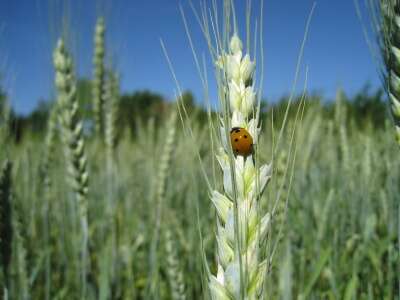The natural cultivation of plants and the development of agriculture, on a global level, is quite damaged, and we have a big task and a heavy responsibility in front of us, to work on it, to change it.
The good news is that it is still possible, as evidenced by a growing body of evidence and research:
- "Business as usual", or as it is translated in our country, "Everything is allowed in business", that is, the complete industrialization of agricultural production, which is not a sustainable option for all the challenges that await us in the future,
- In a very short period of time, we must switch to "greener", i.e. more ecological ways of cultivation and development,
- The inclusion of family farms in ecological cultivation and production is a key part of the solution.
Challenges
The current system of fully industrialized food production has generated more than a billion hungry people worldwide. This number, of one billion, is equal to the number of people who have problems with excess weight, as well as all accompanying health problems. Almost half of the world's population, about three billion people, live in poverty. Industrial agricultural production also has a major impact on global climate change. Organic oil reserves lead to an increase in fertilizer prices. Some estimates say that by 2050 the human population will increase to nine billion. Is it the right moment to switch from the industrial way of agricultural production to an agroecological one?
The reality today is that there is enough food in the world for everyone, but this system of industrialization does not allow all the hungry to buy food for their needs, or to produce it for their needs. However, three billion small agricultural producers already produce about 70% of the world's food production. It is the best proof that the agroecological method of cultivation and production is sustainable, and that it can be more successful than the existing one. In contrast, 30% of food production is produced in an industrial way, but it is consumed globally and is more represented in food consumption.
What is agroecology? How does it work?
Agroecology is one of many terms to describe an ecological approach to farming and agricultural production - the others are sustainable agriculture, ecological agriculture, and the like.
One, perhaps the best definition, for agroecology is: "agriculture consists of food production centers that use the best goods and services and do not damage natural resources." This refers to the ecological design of agricultural systems; as a total approach to agricultural and food systems; in connecting ecology, culture, economy and society to create a healthy environment for food production. (Source: http://vvv.moreandbetter.org/en/nevs/a-viable-food-future).
It may sound like a complicated process for extremely poor farming families around the world. But the reality is that it is possible, because, basically, this system relies on increasing the skills and knowledge of farmers: they have many years of experience working with nature, they have an understanding of the dynamics of development in their local environments, they produce food and other the products they need, they have an understanding of the maximum use of available resources, problem solving and risk severity, costs and benefits of such a system. That is why they can manage this process and become its lifelong innovators.
Agriculture and food production are the basis of life and economy and have multiple functions in creating healthy societies. They are at the center of attention in addressing challenges such as hunger and poverty, climate change and environmental protection, women's well-being, community health, income and employment security. The transition to "greener", ecological, productive, agro-ecological agriculture enables local communities to be leaders in creating such solutions.
Conclusion: it also depends on the method of cultivation and production food preparation, its quality as well as its great influence on the health of the population. You should constantly think about it and take care of it...
Source: Groundswell International
Read more:
If you are interested in all our recipes, click on the link: RECIPES. Collections of the best recipes of our collaborators can be found in the cook section, if you want to read more, click on the link: COOK. If you want to see our front page, click on the link: RECIPES AND COOK ONLINE homepage. If you want to see all the recipes from the In your free time category, click on the link: U LEISURE. If you want to see all the recipes from the Healthy Life category, click on the link: HEALTHY LIFE.
Don't miss a recipe - Recipes and cookbook online on Facebook. Stay tuned,follow the Recipes and Cookbook twitter notifications!









